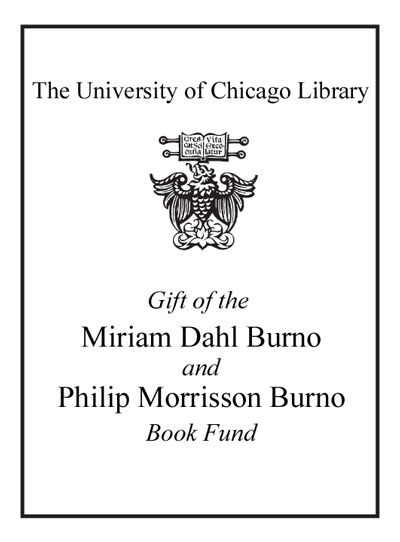Review by Booklist Review
It's 1951, and Penn State junior Jerry Engels is something of an anomaly. Quoting from the Kinsey report, modeling in the nude for an art class, trying to elicit information from his flabbergasted fraternity brothers about their homosexual experiences--Jerry is unabashedly obsessed with all things erotic. He is seriously in debt and in danger of flunking out, but the only thing that interests him is love. Even while urging his friend Anne to explore her lesbian tendencies, he offers to satisfy her curiosity about sleeping with men. His biggest struggle is learning to balance his sexuality with his romantic yearnings--he has just lost a seemingly idyllic girlfriend after infecting her with an STD. Then Jerry meets and is immediately smitten with college English teacher and recent divorcee Elizabeth Grant. Their unlikely courtship, in which Elizabeth quotes poetry to him while he paints her apartment and cooks her dinner, is both amusing and touching. Like Jerry himself, Rogers' novel, a sequel to At the Shores 0 (1980), is quirky, endearing, and full of surprises. --Joanne Wilkinson Copyright 2005 Booklist
From Booklist, Copyright (c) American Library Association. Used with permission.
Review by Publisher's Weekly Review
Rogers first introduced ?erotic pantheist? Jerry Engels in his marvelous 1980 novel, At the Shores, in which Jerry, a 17-year old Chicagoan, lost his virginity to a bleary prostitute and botched an honest attempt to drown himself in Lake Michigan after a failed romance. In this, the winsome second installment of his ineluctable Bildungsroman, Jerry is a 21-year-old junior at Penn State. Rather than study, however, Jerry eagerly digests the Kinsey Report (the novel is set in 1951 and 1952), floats around with his frat brothers, pumps iron, composes amateur verse and poses a nude model for a campus art class. Of course he also chases women, including a Philadelphia hooker who gives him crabs, a confused lesbian, his buddy?s vulnerable younger sister and Elizabeth Grant, his blustery freshman English professor with whom things eventually get quite serious. Irresponsibly confident yet enviably cocksure, Jerry lets his own heart guide him, publicly ignoring well-established legal, social and sexual mores. To Rogers?s credit, however, Jerry rarely stinks like a sordid letch. And though it?s somewhat hard to believe in an adolescent male who so audaciously fetes sex (even homoerotic encounters) during the Truman years, Rogers?who is still vastly underappreciated?nonetheless manages to suspend our disbelief with a superb comic vision of a shameless, harmless, lovable lothario who refuses to inherit the world?s cynicism and who, foolishly or not, is his own man. (Apr.) Copyright 2005 Reed Business Information.
Review by Kirkus Book Review
Rogers's long-time-coming follow-up to At the Shores (1980) pursues the ever-puerile, faintly touching adventures of die-hard romantic Jerry Engels, now a junior at Penn State in the fall of 1951. Some of the smart set from Jerry's hometown of Chicago reappear here, especially the former girlfriends who remain fond of him because he "never met a woman he couldn't like," even if he eventually loses them all through carelessness. (Sorority girl Pat is still mad about the pubic lice he passed onto her from a Philadelphia prostitute.) Jerry is failing Petroleum and Natural Gas Engineering, a major chosen only because his father is an executive at Standard Oil and his mother a scientist. He should switch to Psychology, Jerry thinks, or even volunteer for active service in Korea. What he really believes, it turns out, is that education is a waste of time because all he needs to learn is how to love, and that can't be taught. Jerry's intentions are noble, but he's not very bright: his attempt to recruit a less-than-polished friend into his fraternity ends badly, and he makes up to homely Anne Player in his Life Drawing Class (he's the gorgeous model) by telling her that his dates don't usually talk back the way she does. "Despite his promiscuity," Rogers declares of Jerry, "he had always assumed he would eventually end up a monogamous and happily married man like his father." Indeed, after Jerry runs into his freshman English teacher at a Poconos ski lodge, he and 28-year-old doctoral candidate Elizabeth Grant embark on a sweet and surprisingly genuine love affair. Rogers's gently ironic dialogue succeeds in keeping Jerry's superficially percolating love worries almost interesting. He's truly a novelist of the old school, who manages to elevate this dumb, girl-crazy boy into a sympathetic character. "I'm hard to idealize," Jerry remarks to Elizabeth, but he's also hard not to like. Brings to mind the youthful, love-aching heroes of Fitzgerald and Bellow, among others. Copyright ©Kirkus Reviews, used with permission.
Copyright (c) Kirkus Reviews, used with permission.
Review by Booklist Review
Review by Publisher's Weekly Review
Review by Kirkus Book Review

